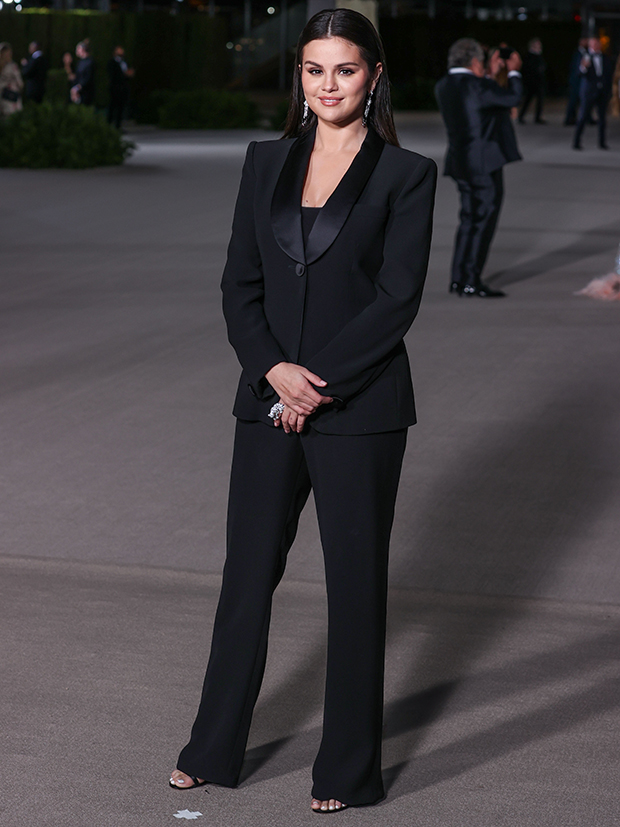
Selena Gomez, 30, opened up about her feelings and growth as a person, in a new interview. The singer admitted she’s glad she went through past heartbreaks, including the heartbreak from her previous on-again, off-again romance with Justin Bieber, in her life, and still has “hope” in finding love that’s right for her in the future. “I feel like giving myself completely to something is the best way I can love,” she said on the latest episode of Jay Shetty’s “On Purpose” podcast. “But I never wanted the pain that I endured to put some sort of guard on myself — an armor if you will — and I never let that happen because I still believe and I still hope.”
Selena went on to reveal that although there are “days that I feel so far away” from being in another relationship, when all is said and done, “I would rather continue to get my heartbroken than to not feel at all.”

The “Good For You” crooner had a very high-profile on and off relationship with Justin from 2011 until 2018 and also dated The Weeknd for 10 months before breaking up in Oct. 2017. She discussed her love life and what she’s learned from the drama and struggles, in her new documentary, Selena Gomez: My Mind & Me, which was released on Nov. 4. She also told Jay that she doesn’t want people to look at her and think she “has it all” despite her fame and fortune.
“I think I really ultimately wanted people to realize that I’m really not that put together. I can be. And I feel much better now. But I don’t want people to ever look at me and think she has it all. And she’s figured it out, and she is perfect,” she explained. “I just want to be someone that people can genuinely walk up to and say, ‘hey, I understand what you walked through. I did too.'”

Selena also touched on being diagnosed with bipolar disorder in 2019, which she mentioned in her documentary, and how she’s been dealing with it. “My favorite thing I say in the documentary, ‘I have bipolar.’ I learned how to live with it, and I just have made it my friend,” she said. “To be honest, I’ve been to four treatment centers, and I have a lot of opinions on rehabs if you will. There’s a lot that I don’t agree with.”
After going thorough experiences, she has learned that accepting the reality of whatever situation she’s in, is what leads to change and improvement. “But what I will say is…learning lessons through dialectical behavior or cognitive behavior therapy, there is something that has always been embedded in me throughout all those different moments in my life,” she shared. “And that was always to recognize when something is happening to me, accepting it. And once I realized that this was something that wasn’t going to go away…it wasn’t something that was going to be fixed by going to these places. It was more so, what can I know about myself. If I go down this road, I will be triggered, and I know that feeling and know how to avoid it. However, I go to therapy. I also take medication that I fully am on and believe in wholeheartedly. And it helps me stay balanced. But I still have to deal with it.”
Another poignant subject she talked about in the podcast interview was how she navigates critics and negative press about her. “I really had to learn the hard way on how to deal with it…not give that clickbait that people want,” she said. “I do my best to try and eliminate these negative stories or other people illustrating my journey. I interrupt them with my truth and that’s what I will always continue to do. It’s me taking control of my story and no one can change that, or say anything different.”
“It actually gives me pleasure to combat it with love or kindness,” added. “I’m grateful for my past because it’s made me a lot stronger.”


